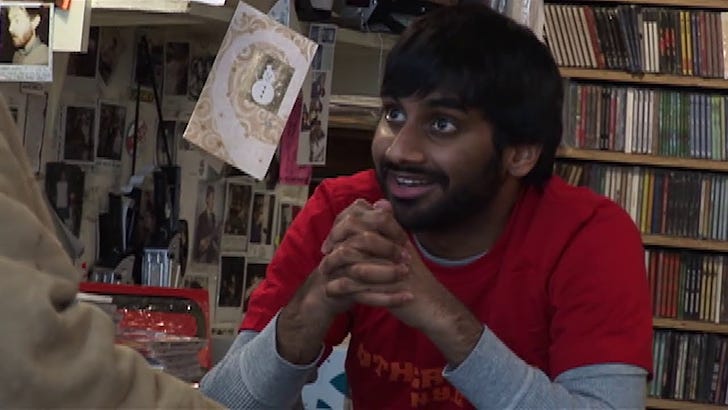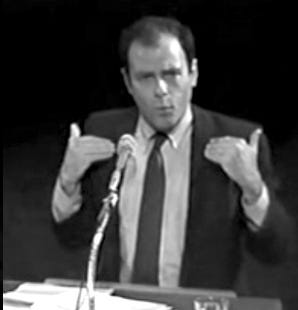The Crying of Lot 2046
Are we moving beyond lifestyle marketing to cultural belief systems? Or are just as likely to live on a Mars colony?
Writer/researcher Toby Shorin recently gave a speech at the FWB Fest and the speech is online now with a few extras. From the piece (“Life After Lifestyle”):
Friends With Benefits [is] a digital community that promotes cultural creation on web3. But where are FWB’s products? Instead, the culture seems to be the main thing, the product itself.
This is not limited to the celebrity-backed DAO FWB of course. This is related to delivery service Shipt and curated clothing brand LOT2046. Mind/body workouts like SoulCycle. The bigger picture then, seems to be that the cult of the “authentic individual” that is above marketing and commerce (or more recently, who is the brand instead of shilling for the brand) is evolving into communities that are filling the hole that religions and civic institutions once occupied.
Sounds like a bit much, right? That’s because of my simplistic, reductive paraphrasing. Shorin is truly a great writer and it wasn’t his fault that I wasn’t seduced by his missive. It was strictly history’s fault. In the ‘80s, yuppies redefined commerce for the world. Before yuppies, consumerism was always considered mindless. A grudging necessity. The only consumers that actually got excited about products were Stepford wives who hadn’t had an original thought since the 1950s. The yuppies created the market of sophisticated, yet slightly affordable consumption. Espresso machines. Gym memberships. This wasn’t the junk culture of McDonald’s and Sears. This was about refinement, lifestyle.
Wait, isn’t that what FWB and all of them are moving away from? That’s what Shorin suggests, although I would say it is more of an evolution from than a movement away. The ‘80s was the decade that brought us from the Industrial Age to the Information Age.
Since this was the dawn of the Information Age, with microchips, PCs and alternate realities (video games) in their infancy, yuppies couldn’t sell communities as products just yet. But a few had the fire of ideology fueling them.
Jerry Rubin was Abbie Hoffman’s sidekick in the heady Chicago 7 days. In the ‘80s, he became a yuppie, like many left-leaning (and right-leaning) Baby Boomers did. And like many failed maturing radicals, Rubin argued for changing America from the inside. In some ways literally: he notoriously offered Hands Across America as an example of effective activism (since it was used as a terrifying punchline in a Jordan Peele film, the answer is no).
Let me be fair: yuppies were such easy punching bags because they were missing the tech. The Jerry Rubins of the ‘80s evolved into the Bill Gates’ of the ‘90s. Gates sold operating systems, not communities or belief systems. But, for someone who was alive in the ‘90s and enjoying the Internet through Windows like the rest of America did (you think Apple is high end now?) I can tell you that even something as retrospectively cheesy as Microsoft Windows or Internet Explorer felt like a new religion back then. At a time when new religions were uncommon.
By the 2010s, Silicon Valley spawned the techies, who were like yuppies but with smaller mobile phones. More than the yuppies, the techies were idealistic, speaking to everyone pretending to listen in TED talk monologue form. Great as Shorin’s paean to the coming age is, it still does belong to the TED talk genre of “inspiresting.”
Since we are zipping down the timeline here, I decided now would be a good time to bring out a map of the different eras.
The Hip Era ('50s to '70s)
This era began with non-conformist beatniks who valued authenticity and cataclysmic experiences. It came to a whimpering end with the soft-rock Laurel Canyon hippy dippy troubadours of the late '70s.
The Yuppie Era (1980-1992)
An outgrowth of the Hip Era, Yuppies also revived the corpse of consumerism and mated it with the beatnik/hippie ethos of elevated cultural values (many yuppies were responsible for the art boom of the '80s, including Warhol's comeback).
The Alt Era (1992-2014)
There was more of a counter-cultural tinge to this era (from the slackers to the hipsters) but the mechanics were different. The revolution of the hip era was more about mainstream works with revolutionary messages. Much of the alt era was centered around the indie business model. Corporate Rock Sucks, Support Your Local Scene, etc. During the '00s, the hipsters were to the alt-rock slackers what the yuppies were to the hippies, offering a smarter, more sustainable business model for alt-ideals (this time, through tech but also this time, short-lived and ineffective).
The Hashtag Era (2014-2022)
Driven by the twin engines of wokeness and poptimism, the hashtag era is basically the hip era but for social media. I prefer to call the woke Millenials of this era "hashtag hippies" than to call them just Millenials or the more Facebook dad-ish word "snowflake."
The Meme Dream Era (2022-?)
More on this further down.
OK now let me point to the map and drop a pin in the Hashtag Era. This is when attention replaced materialism. One thing this led to was the unmooring of commercials from products. Through much of the 2000s, commercials focused less on what they were selling than they were on grabbing your attention with drunken conversations (“Wassup”) or horses. Of course this paved the way for mooring ad campaigns to messages and causes.
Woke propaganda was not limited to Super Bowl commercials. Many influencers used it to add weight to their personal brand. The inspiring personal brand evolved to the energizing community brand, which brings us back to the FWB manifesto above.
Yuppies were such easy punching bags because they were missing the tech. The Jerry Rubins of the ‘80s evolved into the Bill Gates’ of the ‘90s…even something as retrospectively cheesy as Microsoft Windows or Internet Explorer felt like a new religion back then. At a time when new religions were uncommon.
Boomer yuppies promised to change capitalism from the inside. Instead it changed them. Hipsters were supposed to topple mainstream culture with a new, web-based, indie economy of mp3 blogs and podcasts. Social media platforms burnt all that to a crisp and all the hipsters had left were the neighborhoods whose rent they raised. But hey, why take the word of a jaded, 40-something Gen Xer? There are plenty of other reasons to be skeptical of cloud-based digi-utopias. Chief among them: excitement about Silicon Valley is as low now as it was for the space age in the early ‘80s. Oh, we are addicted to tech, all right. But belief in the utopian potential is not as widespread as it once was, even if it’s more passionate than ever before.
Enter the Meme Dream era. This is a hard one for me to parse, since I just discovered it yesterday and it just dawned this year, so forgive my shaky cartography for this heretofore undiscovered country, but here we go!
The Meme Dream era has three aspects to it:
Meme Dream in the sense that we are placing a lot of value in memes, between meme stocks, memes as art, etc.
Meme Dream as in it is a dream separate from objective reality.
Yes, today’s excellent Stay Grounded newsletter fell like manna from the virtual heavens (in order to take my eyes off the virtual heavens). The focus of today’s post is on how internet culture is entirely separate from reality outside our phones. Even TikTok? Especially TikTok.
From what I have seen, this is not always how online culture was. New York City in the 2000s had internet culture coursing throughout it. You’d go to an indie show and read about it on Brooklyn Vegan the next day. Aziz Ansari would play a sketch video he made with the Human Giant team at the UCB the day before it appeared on YouTube (and loong before Human Giant was an MTV show).
But social media, which held the promise of supercharging this trend, ended up replacing legacy media companies only to turn music, literature, art, into a shapeless blob of content that is fascinating, but increasingly detached from the outside world.
From the always-great Josh Citrella’s Instagram story:
For this reason as well as many others, the Web3 marketplace of cultural belief systems sounds like a hyper-enthusiastic pitch to move to the planet Mars (which of course is also being discussed now). Beautiful dreams, but far out, maaan.







